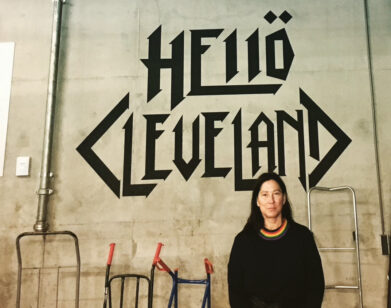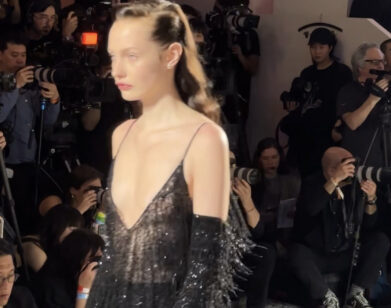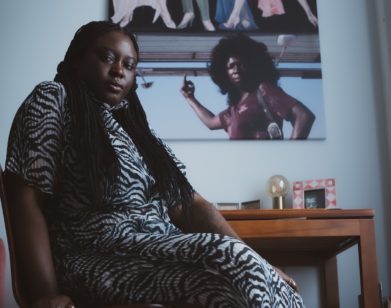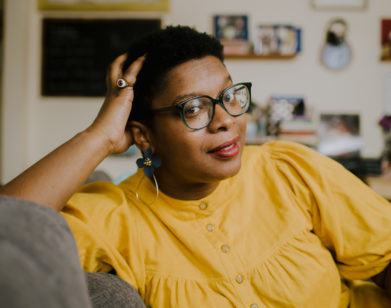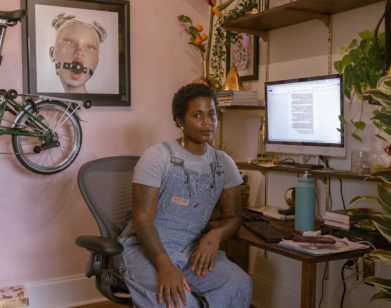10 vital books to read during women’s month
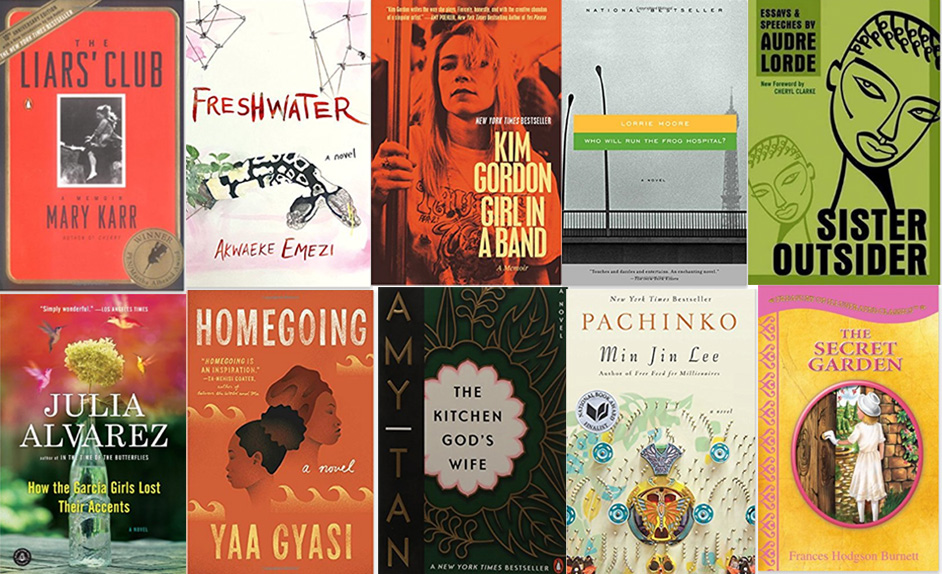
To celebrate women’s month (what, did you think we’d stop at Women’s Day?) the ladies at Interview have assembled a list of required reading. These are some books that have made us feel empowered, liberated, or simply understood.
Freshwater by Akwaeke Emezi
Freshwater tells the story of Ada, a Nigerian child who storms into the world carrying a number of selves within her—ogbanje spirits who flew through the cracks in the gates left open by the gods. Akwaeke Emezi (she/they) has a brilliant voice and her perspective, being non-binary, trans, and an ogbanje spirit herself, lends the novel its heart. The story pushes back against the typical Western language and ideas surrounding gender and consciousness, and rejects colonialism’s attempt to delegitimize Nigerian tradition and Igbo spirituality. In a world where all bodies that are not cis white straight male are under attack, stories about different identities and divergent ways of thinking about those identities are crucial to any fight for equality. —Ngozi Nwadiogbu
The Secret Garden by Frances Hodgson Burnett
This beautiful book, which I first read in second grade, was my first experience with a novel fronted by a flawed female hero, and written by a woman, no less, when most of our future educational cannon would be dominated by male authors. Quite a divergence from the Disney princess narratives we were spoon-fed as kids, protagonist Mary Lennox is a young girl who is neither beautiful nor agreeable, and by the conclusion of this story she is responsible for saving—psychologically and physically—the young boy anti-hero and his father. In a world where women are compelled to alter everything about themselves to attract men, the importance of exposing young girls to narratives in which they can be not only heroes, but imperfect and ordinary looking and emotional heroes capable of saving themselves, cannot be overstated. —Jane Gayduk
The Kitchen God’s Wife, Amy Tan
In The Kitchen God’s Wife, Amy Tan explores the Chinese-American identity through a mother-daughter relationship. At the crux of Tan’s sophomore novel are the secrets shared between a mother and daughter, bolstered by an emotionally told story of strength in the face of tragedy as a woman growing up in early 20th century China. Tan’s casual cadence paints a poignant picture of female resolve, as well as the nature of submission and subordination that is imposed on women in a male-dominated society. —Angel Cheng
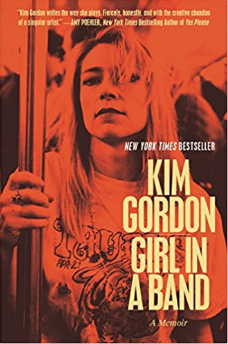
Girl in a Band, Kim Gordon
I must’ve been around 15 when I first saw a YouTube video of Sonic Youth playing live. I remember sitting behind a clunky desktop in my school’s computer lab watching Kim Gordon shred out “Kool Thing,” in awe of her ability to thrash and howl while remaining somehow both ferocious and aloof. Tough, cool, and straight-faced behind a low-hanging Gibson Thunderbird; this was someone I could look up to. In her 2015 memoir, Gordon shatters the illusion of impenetrability so often projected onto her, answering the reductive question of “What is it like to be a girl in a band?” (posed to the noise rock icon repeatedly throughout her days with Sonic Youth) with remarkable sincerity and dry wit. At one point in her account, Gordon asks, “If you have to hide your hypersensitivity, are you really a ‘strong woman’?” If Girl in a Band proves anything, it’s that opening up only makes a woman more kick-ass. —Annie Murnighan
Homegoing, Yaa Gyasi
A powerful debut from author Yaa Gyasi, Homegoing begins by introducing two half-sisters in Africa whose lives take drastically different paths. The book’s ingenious structure enables it to better capture a diverse range of African and African-American experiences, all while demonstrating the long-term effects of slavery, racism, and how each generation is a product of the one that came before it. This fictional narrative studies the limited choices women have faced throughout history and the consequences these limits have imposed on their descendants of either gender. Here, Gyasi masterfully illustrates the concept of privilege, and what it means to not have any. —Holly Mascaro
The Liars’ Club, Mary Karr
This is one of those books you feel compelled to pass on to a female friend as soon as you’re finished, empowering as it is. Published in 1995, Karr’s memoir of growing up in a small East Texas oil town in the early ’60s describes a childhood filled with its fair share of misery while still maintaining a salty sense of humor. A poet as well as a memoirist, Karr has said that writing saved her, and her ability to describe “her truth” has reverberated well beyond her own life. As she said in an interview in Publisher’s Weekly in 2000, timed to the publication of Cherry, her equally powerful account of her teenage years: “My idea of art is, you write something that makes people feel so strongly that they get some conviction about who they want to be or what they want to do. It’s morally useful not in a political way, but it makes your heart bigger; it’s emotionally and spiritually empowering.”—Catherine Davis
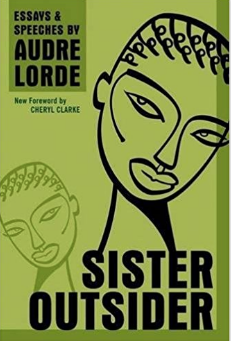
Sister Outsider, Audre Lorde
It’s been over 30 years since its release, yet Sister Outsider remains nothing short of a revelation. In a series of speeches and essays written between 1976 and 1984, Audre Lorde’s collection finds the self-described “black lesbian feminist warrior poet” relating her experiences of racism, sexism, and homophobia with remarkable nuance and potent prose. Sister Outsider is still staggeringly current, reminding us that “revolution is not a one time event.” —Annie Murnighan
How the García Girls Lost Their Accents, Julia Alvarez
In her debut novel, Julia Alvarez moves backwards in time to capture the plight of the titular Garcia girls, when their lives are uprooted after their family flees from the Dominican Republic to the U.S. in 1960. Alvarez’s varying portraits of the sisters highlights the immigrant experience for women. The story of the Garcia sisters as they simultaneously adjust to an unfamiliar environment and begin affirming their independence as women—often against the men in their lives—is a tribute to defiant women, immigrant or otherwise. —Angel Cheng
Who Will Run the Frog Hospital, Lorrie Moore
Middle-aged Berie is reflecting on her teenage years in the middle of nowhere—Horsehearts, New York—as the sidekick to her babe best friend Sils, their lives now completely diverged. Berie is stuck in a loveless marriage in a big city, while Sils remains in their hometown, presumably forever. Moore explores growing up and the nuances of female friendship, and how a deep connection forged early on in life can be impossible to replicate in later years. It’s also about unmet expectations—Berie’s life is miles away from what she imagined for herself. Despite being a fiction novel, Moore’s raw and witty voice feels like the conversation that you should have with a woman who’s been there. —Jane Gayduk
Pachinko, Min Jin Lee
This vast saga follows a family from their humble beginnings in Korea to their new home in Japan, one that never fully welcomes them. The story’s protagonist is Sunja, a woman caught between honoring traditional Korean values and embracing new ones if she wishes to secure a place for her family in this unfamiliar environment. Author Min Jin Lee explores themes that are especially relevant today, including the plight of refugees, how to define one’s identity, and the difficulty of deciphering between right and wrong when all the rules have changed. More than anything, she gives us a suite of strong female characters who, although often flawed and vastly different from each other, are all united in their search for a better future for themselves and for those they hold dear. —Holly Mascaro

